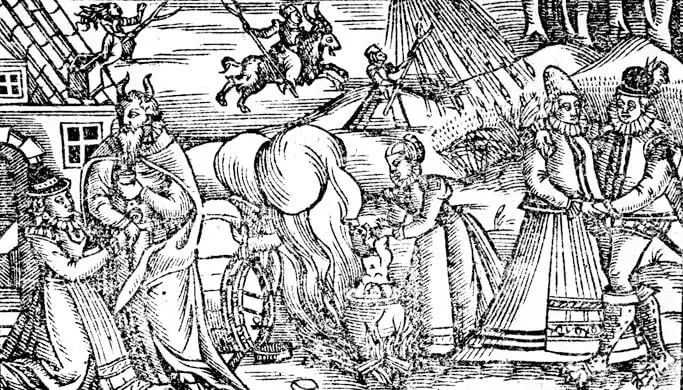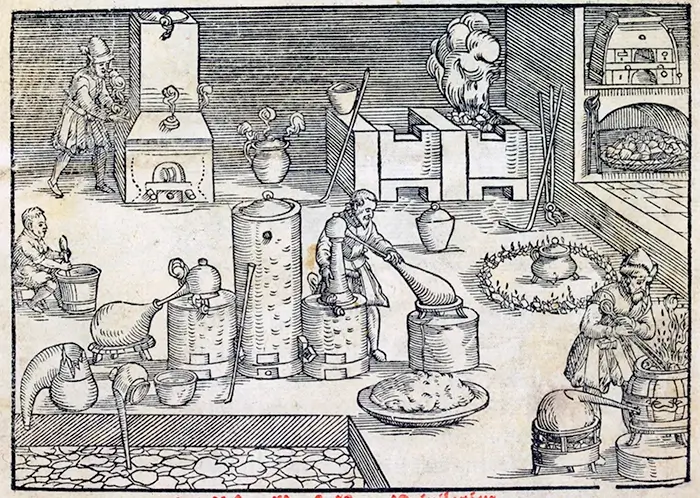What is Occultism?
Occultism refers to a wide range of beliefs, practices, and ideologies that are focused on the study and exploration of esoteric and supernatural phenomena, such as magic or divination.
The term “esoteric” refers to knowledge intended for or likely to be understood by only a small number of people, and not accessible to the general public. “Supernatural” is a more wide-spread term, meaning something that’s beyond scientific understanding or outside the laws of nature.
The word “occult” originates from the Latin “occultus”, and according to the Merriam-Webster dictionary, the term means something that’s not revealed, a secret, hidden from view, and not detectable with clinical methods alone.
What areas belonging to the world of the occult do you believe in and/or find fascinating?
What areas does occultism cover?
There are several spiritual, mystical and magical practises that are considered part of the occult. Some of the traditional ones include, for example:
- Magic, such as using charms or spells that have power over natural forces in order to create change or transformation to one self or others.
- Alchemy, a pseudoscience with the goal of transforming base metals into gold and finding a universal elixir, or the key to eternal life
- Astrology, a system of divination and belief that involves studying the positions and movements of celestial bodies to gain insight into human affairs and natural phenomena.
- Divination and fortune-telling, which are practices that aim to gain insight or predict the future through supernatural or intuitive methods, such as tarot reading, astrology interpretation, or other forms of spiritual guidance.
- Hermeticism, a philosophical and religious tradition with the pursuit of wisdom, knowledge, and spiritual transformation through the study of ancient texts, alchemy, astrology, and other esoteric practices.
Kabbalah, an ancient Jewish mystical tradition that aims to reveal the hidden meanings and insights of the Torah and the universe, through the study of e.g. esoteric knowledge and numerology.

(Image credit: Peter Binsfeld c. 1540 – 1598 or 1603, Public domain, via Wikimedia Commons)
Some other areas of the occult include some newer forms of occult practices, drawing from the earlier movements described above:
- Spiritualism, a religious movement that focuses on communication with spirits of the dead, typically through mediums, and is based on the belief in an afterlife and the continuity of the human soul.
- Theosophy, also a religious movement, but one that revolves around the study of ancient wisdom and mystical traditions to promote universal brotherhood and spiritual development.
- Anthroposophy, a spiritual movement that emphasises the development of spiritual insights and the integration of spiritual and physical realities, with a focus on education, medicine, agriculture, and the arts.
- New Age, a spiritual movement focused on personal growth, holistic healing, environmentalism, and eclectic spiritual practices from various traditions.
History of occultism
Many occult practitioners believed (and still believe today) in the existence of hidden, spiritual forces and energies, and they often sought to harness these forces for personal growth and transformation.
They may also believe in the existence of spirits, entities, and beings beyond the physical realm, and they may engage in practices such as meditation, ritual, and communication with these entities.

(Image credit: Science History Institute, Public domain, via Wikimedia Commons)
Occultism has a long and rich history involving many cultures across centuries. In fact, there actually aren’t any cultures in the whole world that haven’t had some sort of occult-related practises or ideologies at least in some point in history. As scientific discoveries have widened our view of the world, these practices and beliefs have become less common over time.
Some of the earliest recorded forms of occultism can be traced back to ancient civilisations where occult beliefs, e.g. in magic, divination, and spiritual entities, were very common. For example, in ancient pharaonic Egypt, belief in and the use of magic was an everyday thing. For example, Egyptian priests used magic to perform rituals in order to protect their rulers, and magic was used to help the dead with achieving rebirth.
Occult practises and beliefs have been present ever since then. For example, in the Middle Ages there was a strong interest in Alchemy. During the Renaissance, interest in esoteric knowledge had a sort of a revival, it became trendy, and many people including famous artists and painters became interested in the occult, and incorporated elements of it into their work.
Occult practices have become popular again
In terms of contemporary occult practices, there are many different schools of thought, each with its own set of beliefs, practices, and rituals. Some of the most well-known contemporary forms of occultism include Wicca (a neo-pagan spiritual tradition emphasising nature and the divine feminine), Thelema (Aleister Crowley’s tradition that highlights individual freedom and the pursuit of personal enlightenment), and Chaos Magic (a more recent form of occultism involving shaping reality through symbols and sigils).
However, in even more recent times, there has been a resurgence of occultists practices that have arisen especially during the Covid pandemic. There are videos trending on TikTok in the category of “WitchToks” where (usually teenagers or young adults) are filming themselves practising witchcraft or aspects of Tarot.
The TikTok hashtags for WitchTok have reached many billions of views. According to a data-backed report from Brandwatch, there has been a massive increase in interest in the occult especially during the Lockdown period, and a big increase as well in related products being sold on the market.
What’s also interesting in the data from Brandwatch, is that mentions of things like “astrology” were seen quite negatively before the pandemic, and in a more positive light during lockdown. This can be explained by people spending more of their time exploring esoteric topics during the pandemic compared to before. Belief in ghosts also seems to be on the rise!
I rather like the idea that there are ghosts hanging out around us. Kind of like “the other side” in Vampire Diaries where the (supernatural) dead could see and hear us, just not interact (unless something went wrong, which it kind of did lol).
Do you believe?

(Photo by Tandem X Visuals on Unsplash)
References and further reading
- Occult – Merriam-Webster
- Occultism – Encyclopædia Britannica
- WitchTok: the rise of the occult on social media has eerie parallels with the 16th century – The Conversation
- The occult is having a moment – Morning Brew
- Interest in ‘The Occult’ Booms During Lockdown – Brandwatch
- Ancient Egyptian Magic – BBC
- Influential Occultists and Other Figures – Digital Occult Library
- The New Encyclopedia of the Occult (Greer, 2003)
- The Occult, Witchcraft & Magic, an Illustrated History (Dell, 2016)

